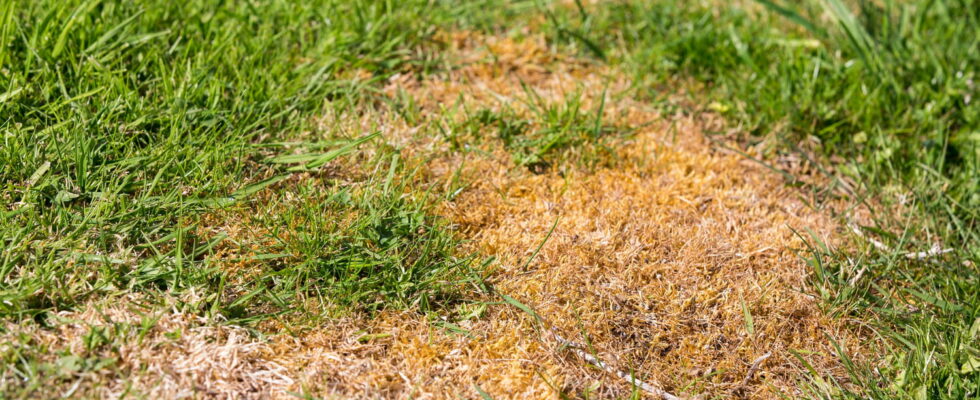If you want to avoid finding a yellowed and rotten lawn in the spring, here is the essential thing to do in the fall.
Fall is a pivotal season for the garden. Cooler temperatures and frequent rain herald a transition period before winter, and many homeowners decide to let their gardens rest for a few months. But it’s important to do some yard work and prepare outdoor spaces for the winter months ahead. For example, you need to put away garden furniture or protect it, clear brush, remove dead flowers, do a final mowing, etc. But another task is also very important.
In autumn, the trees shed their leaves, which have turned yellow, orange and red. If this natural phenomenon delights the eye, it represents a danger for your lawn if these leaves are not quickly removed. Indeed, an accumulation of dead leaves forms a thick and dense layer which blocks the light and air essential to the survival of the grass. This prevents the grass from breathing and benefiting from the sun’s rays, essential for its photosynthesis. Worse yet, this wet blanket traps moisture, creating an environment conducive to the growth of mold and fungus.
Among the essential tasks in autumn for gardeners, collecting dead leaves is crucial. This task is often perceived as long and tedious, and many decide to leave the leaves on the ground to enjoy a pretty, colorful carpet. However, not doing it is a very bad idea, this action is essential to preserve the health of the lawn and prevent the grass from turning yellow and rotting.
If dead leaves remain in place for too long, the grass, deprived of oxygen and light, begins to turn yellow and then rot. This is how we find ourselves, in the spring, with bare or diseased areas in our garden, requiring repairs that could have been avoided by simple collection. So it’s time to get to work!

Collecting leaves can be done manually with a rake or using a blower, depending on the size of the garden. You can make lots of them. The leaves collected should not be thrown away. They can be used to make compost, an excellent natural fertilizer, or as mulch to protect sensitive plants from the winter cold. Thus, this simple, but essential action not only allows you to maintain a healthy lawn, but also to recycle the garden’s natural resources.
To make the job easier, pick up the leaves little by little and often, as they fall, rather than waiting for the entire tree to go bare, which can take much longer. Also be careful when moving piles of leaves, be considerate of hedgehogs who may be hiding there.
